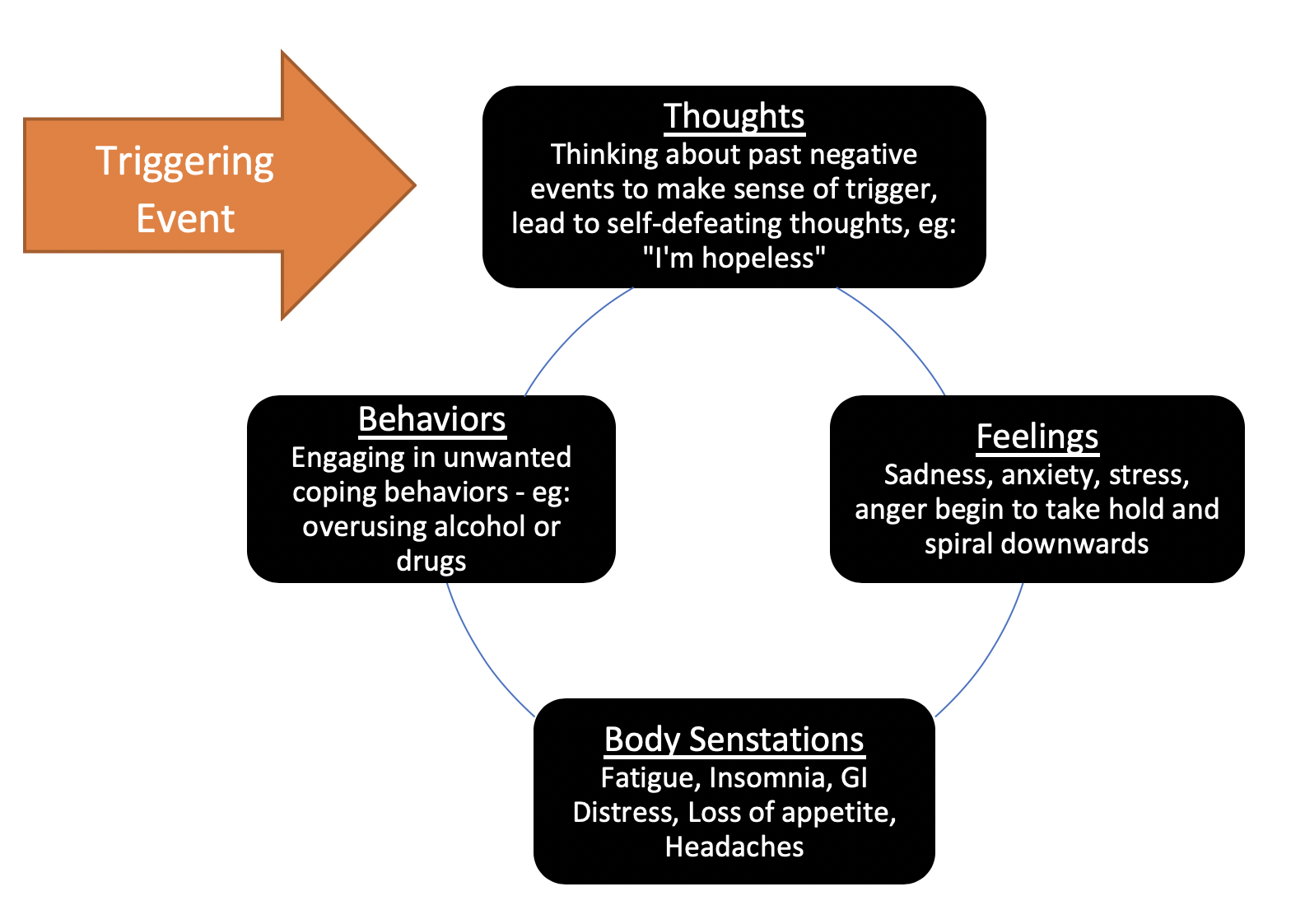
Depression Versus Sadness
Depression is often described as “the common cold of mental health disorders.” This metaphor can feel validating because like the common cold, periods of depressed mood or sadness are a common human experience. However, this metaphor can also feel invalidating because unlike the common cold, a depressive disorder often doesn’t resolve itself in a few days. To better understand clinical depressive disorders, how to recognize them, and how they differ from sadness or feeling down, check out this article.
If you think you may have a depressive disorder, and are interested to learn more about the symptoms, causes, and treatments, check out this video to get more information.
If you aren’t sure that you identify with having a depressive disorder, but are experiencing low mood or feelings of sadness, check out this video to better understand the common human experience of depression.
The Cycle of Depression
Whether you are currently struggling with a depressive disorder or are stuck in an undefined period of sadness, it can be useful to understand the cycle of negative thinking that people may get stuck in when feeling down.

For an example of this cycle in action, check out this article. As is evident from the above cycle, the self-defeating and self-critical thoughts that we have when feeling depressed or sad are often inaccurate, and are called “cognitive distortions.” Better understand cognitive distortions by reading this guide or watching this video.
Strategies to Manage Depression
There are several strategies to manage depression, and different ones work for different folks. If you need help deciding where to start, reflect on which aspects of the cycle of depression feel most distressing for you. Is it the self-defeating thoughts? The feelings of sadness or anger? The body sensations such as headaches, insomnia or fatigue?
Thought Strategies: The first step in addressing cognitive distortions, or self-critical and self-defeating thoughts, is to become more aware of them. Use this worksheet to identify which cognitive distortions you identify with, and rank the top 3 ones you use most often. One of the most common cognitive distortions is catastrophizing, if you marked that as one that you identify with, complete this worksheet. Now, find an example thought or worry for one of your other top cognitive distortions, and use this worksheet to better understand it. Finally, regularly practice countering your negative thoughts using this worksheet.
Feeling Strategies: If you find yourself feeling stuck in your sadness, anger, hopelessness, or other feelings associated with depression, behavioral activation can help. Behavioral activation is a very effective technique whereby increasing engagement in activities that make you feel good, also helps you get unstuck from painful emotions. Watch this video to learn more about behavioral activation. If you are not sure what activities you enjoy, take this quiz and try some of your top rated activities!
Body Sensation Strategies: Mindfulness and body-focused techniques have been found to help physiological symptoms of depression such as headaches, insomnia and fatigue, as well as ruminative thoughts and difficult emotions. Check out this study on the effects on meditation on the brain. Some free mobile apps to start or continue your meditation practice include Liberate, Calm, and Sanvello. Mindfulness isn’t limited to meditation, so if meditation isn’t your thing, try mindful walking, mindful eating, or yoga.
Contact and Hours of Operation
Address: 1462 Clifton Road, Suite 235, Atlanta, GA 30322
Phone: 404-727-7450
Fax: 404-727-2906
Crisis Consultation: Call 404-727-7450
Hours of Operation: 8:30-5:00, Monday-Friday
PLEASE NOTE: If Emory University is closed due to weather or other emergency, then CAPS is also closed. In such circumstances, students will be contacted to reschedule appointments once the university reopens.